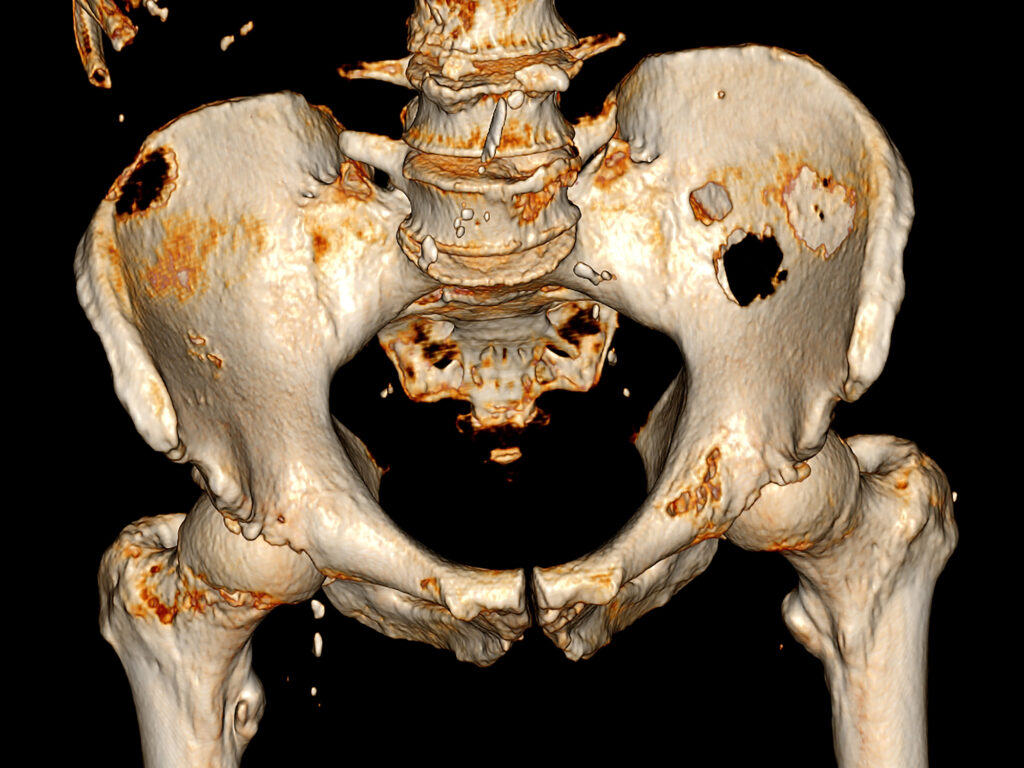
Bone metastases in cancer patients have long posed a significant challenge to effective treatment, particularly in the context of immune checkpoint blockade (ICB) therapies. A groundbreaking study by researchers from the Ludwig Collaborative Laboratory at Weill Cornell Medicine and Nanjing University has now shed light on the mechanisms behind this resistance. Published in Cancer Cell, the study identifies immature neutrophils, reprogrammed by the DKK1 protein, as key players in creating an immunosuppressive environment that fosters metastatic tumor growth.
“This study uncovers a key reason why immunotherapy often fails in patients with bone metastases,” said study co-leader Taha Merghoub, PhD, deputy director of the Sandra and Edward Meyer Cancer Center at Weill Cornell Medicine. “That failure is caused by the accumulation within the metastases of large numbers of immature, immunosuppressive neutrophils induced by DKK1 that cultivate a profoundly immunosuppressive tumor microenvironment.”
The Complex Role of Neutrophils in Cancer
Neutrophils, traditionally known as short-lived responders in the immune system’s fight against infection and inflammation, have emerged as complex players in cancer biology. Over the past decade, research has increasingly highlighted their multifaceted roles, particularly in suppressing immune responses. The current study builds on these insights, aiming to fill existing knowledge gaps about neutrophils’ functions in the tumor immune microenvironment (TIME), especially in bone metastases.
Bone is a common site for metastasis in advanced cancers, with incidence rates between 40% and 90% in lung, breast, and prostate cancers. Despite the transformative impact of ICB therapies on primary tumors, their efficacy in bone metastases remains limited. The reasons for this discrepancy have been poorly understood until now.
DKK1: A Key Target in Bone Metastases
The study identifies Dickkopf-1 (DKK1) as a critical molecule found in high levels in both mouse models and human bone metastases. DKK1 reprograms neutrophils into an immature state that suppresses cytotoxic (CD8+) T cells, essential for effective immunotherapy. In this dysfunctional state, neutrophils release CHI3L3, a protein that inhibits T cell activation and tumor-killing activity.
According to Tao Shi, PhD, a postdoctoral researcher at Weill Cornell, “We tested what would happen if we blocked the effects of DKK1 in mice with bone metastases of triple-negative breast cancer using an antibody to the molecule. The results were dramatic. Neutrophils matured into a healthier and more helpful form in which they stopped producing CHI3L3 and no longer suppressed cytotoxic T cell function. As a result, bone tumors shrank and immune checkpoint blockade immunotherapy—specifically anti-PD-1 treatment—started working effectively again, even eliminating tumors in some cases.”
Mechanisms and Implications
The mechanism by which DKK1 suppresses the immune system involves the CKAP4-STAT6 signaling pathway, which drives the expression of CHI3L3. The research team employed RNA sequencing, immune profiling, and imaging techniques such as micro-CT and MRI to monitor tumor progression and immune activity. A 2023 study published in the Journal for ImmunoTherapy of Cancer, also led by Shi, reported that immature neutrophils comprised up to 80% of the neutrophil population in bone metastases by day 14 post-tumor inoculation in mice. Blocking DKK1 not only reduced tumor burden but also enhanced both innate and adaptive immunity in the bone tumor microenvironment.
“These findings suggest that DKK1-blockade could be used as a combination treatment to improve the efficacy of immune checkpoint blockade therapies against bone tumors, for which there are no currently effective therapies,” Shi said.
The research also indicates that CHI3L3 and its associated gene expression profile could serve as biomarkers to identify patients likely to benefit from therapies targeting neutrophil reprogramming.
Future Directions and Clinical Implications
A major strength of the study is its use of multiple bone metastasis mouse models across cancer types, including breast, gastric, and lung cancers, and the validation of these findings in patient samples. The use of in vivo imaging and immune assays provided a detailed picture of the immune microenvironment and the effects of DKK1 on neutrophil maturation.
Looking ahead, future research will likely focus on integrating DKK1 blockade with existing immunotherapies, identifying biomarkers for patient stratification, and testing combination strategies in clinical trials. The study broadens the scope of cancer immunotherapy research by highlighting the role of innate immune modulation. In more general terms, it underscores the importance of targeting and reprogramming innate immune cells like neutrophils—not just T cells—for cancer therapy.
A DKK1-blocking antibody (DKN-01) is already being tested in clinical trials for other cancers, suggesting a potentially rapid translation to clinical use. “That could significantly hasten progress in translating these findings into patient care,” Shi said.






